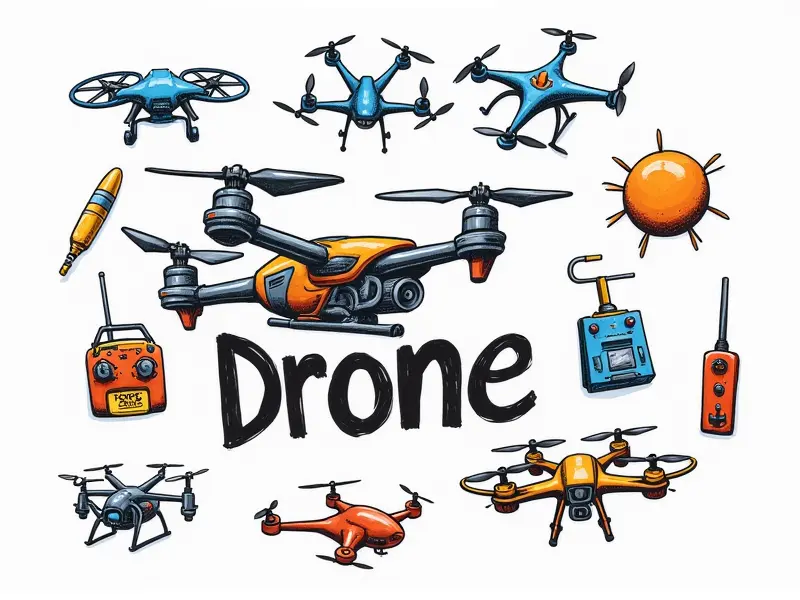Are RC helis noisy?

Are RC Helicopters Loud?
When it comes to remote control (RC) helicopters, one of the most common concerns is noise. Whether you're a beginner or an experienced hobbyist, understanding how loud these aircraft can be and what options are available to minimize their impact on your surroundings is crucial.
How Noisy Are RC Helis?
The level of noise produced by RC helicopters varies significantly depending on several factors such as the size, engine type, and rotor speed. Generally, smaller electric-powered models tend to be quieter compared to larger gas-powered or nitro-powered ones. However, even electric RC helis can generate considerable noise levels during operation.
Noise Levels of RC Helicopters
The decibel (dB) scale is used to measure sound intensity. A typical conversation occurs at around 60 dB, while a noisy restaurant might reach up to 85 dB. RC helicopters can range from about 70 dB for smaller electric models to over 100 dB for larger gas-powered ones. This difference in decibel levels highlights the importance of choosing quieter options if noise is a concern.
Quiet RC Helicopter Options
If you're looking for less noisy alternatives, consider opting for:
- Electric Models: These are generally much quieter than their gas-powered counterparts due to the absence of internal combustion engines. Electric motors produce smoother and more controlled sound levels.
- Battery Capacity: Higher-capacity batteries can provide longer flight times without needing frequent recharges, which means less noise from charging processes.
- Quieter Propellers: Some manufacturers offer propeller designs optimized for reduced noise output. These specialized parts can significantly lower the overall sound level of your RC helicopter.
Understanding RC Helicopter Decibel Levels
To get a better grasp of how loud an RC heli is, it’s essential to understand decibel levels:
- dB(A): This measurement takes into account the frequency range audible to humans and adjusts for perceived loudness. It provides a more accurate representation of noise pollution.
- Loudness Perception: The human ear perceives sound intensity logarithmically, meaning that each increase in 10 dB represents a doubling of perceived loudness.
The Loudest Parts of an RC Helicopter
The primary sources of noise from an RC helicopter include:
- Engines and Motors: Internal combustion engines in gas-powered models generate significant noise due to the rapid combustion cycles. Electric motors, while quieter, still produce some audible sound.
- Rotors and Propellers: The spinning of rotors and propellers creates aerodynamic noise, which can be quite loud especially at high speeds or under heavy load conditions.
Is My RC Heli Too Loud?
Determining whether your RC helicopter is too noisy depends on several factors:
- Location: Flying in residential areas may be more restrictive compared to open fields or designated flying sites.
- Laws and Regulations: Check local noise ordinances and aviation regulations that might limit the use of RC helicopters in certain locations.
Tips for Quieter RC Helicopter Flights
To minimize noise during flights, consider these tips:
- Select Quieter Models: Opt for electric-powered RC helis or quieter propeller designs to reduce overall sound levels.
- Maintain Equipment: Regular maintenance and proper lubrication of moving parts can help decrease operational noise.
- Fly During Off-Peak Hours: Choose times when fewer people are around or when outdoor activity is limited to minimize disturbance.
Neighbors Complaining About RC Helis?
If you receive complaints from neighbors about noise pollution, it’s important to address the issue promptly and responsibly:
- Communicate: Talk with your neighbors to explain your interest in flying RC helicopters and seek their understanding.
- Adjust Flight Times: Consider altering your flight schedules to avoid peak hours when noise could be more disruptive.
Legal Restrictions on RC Helicopter Noise
Laws regarding the use of RC aircraft vary by region. Some areas may have specific regulations pertaining to noise levels and flying locations:
- Contact Local Authorities: Reach out to local government offices or aviation authorities for information about permissible noise limits.
- Fly Responsibly: Adhere strictly to all legal guidelines concerning RC helicopter operation, including restrictions on flight zones and hours.
Minimizing RC Helicopter Sound Pollution
To further reduce the impact of your RC helicopter flights:
- Use Noise-Canceling Materials: Install sound-dampening materials around engines or motors to absorb and dissipate noise.
- Leverage Technology: Utilize advanced technology such as quieter propellers, mufflers, or electric propulsion systems designed for reduced acoustic output.
Conclusion
While RC helicopters can indeed be noisy, there are numerous ways to mitigate this issue through careful selection of equipment and adherence to responsible flying practices. By choosing quieter models, maintaining your aircraft properly, and respecting local regulations, you can enjoy the hobby without causing undue disturbance.

